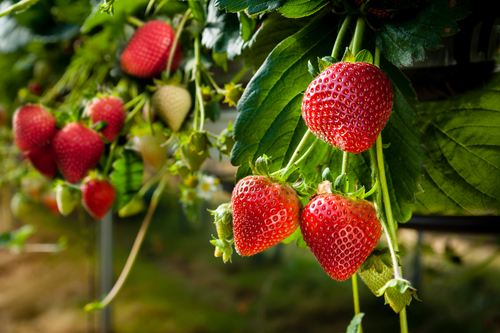Florida strawberry production has been slower than normal this season. But don’t expect that to too last much longer.

“I think that volume’s going to be coming pretty powerfully here whether we’re ready for it or not over the next couple of weeks,” said Vance Whitaker, strawberry breeder at the University of Florida Gulf Coast Research and Education Center.
“We’ve had an explosion of bloom over the last couple of weeks. We’re just sort of at the beginning, I think, of a really large uptick in volume. I think that we’re looking at increasing volume pretty dramatically from where we are right now as we’re heading into Valentine’s Day.”
Slower Production So Far
Florida producers have been harvesting consistently since around Thanksgiving, but the volume has lagged compared to previous years. Whitaker talked to growers in December. They estimated they were somewhere between 20% and 25% behind the production numbers they were at the same time last year.
“We’re not talking like a major, major deficit. But it’s been a little tight. I think berries have been a little bit tight on the U.S. market from wherever they’re coming from, whether it be southern California or Mexico, due to the colder weather,” Whitaker said. “That’s probably been a fairly good thing since I think demand has not been super high with the lockdowns and COVID situation that we’ve been dealing with. It’s probably been a good thing, in the end, not to have any record volume so far.”
Weather Factor
Weather was the main culprit in decreased volume so far.
“We’ve definitely been a little bit shy, up ’til now on volume, a little bit behind. It’s due to two things. One, we had the hottest November on record as far as average temperatures. That kind of slowed down the initiation of the blooms and the crown,” Whitaker said.
“Once we got those flowers initiated a little bit on the late side, then we got this really nice stretch of weather; no major freezes but plenty of cold nights… nice cool weather through December and January. There was fantastic fruit quality, but it’s just slowing down the arrival of that yield.”









